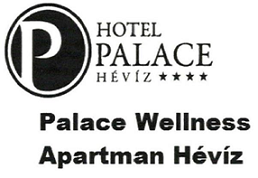An application was filed to register the mark P PALACE HOTEL HÉVÍZ in Classes 35 and 43.

The user of a similar name, Palace Hotel Wellness Hévíz, which leased apartments in the same building in which the applicant leased hotel rooms, filed an opposition based on prior use (Section 5(2)(a) of the Trademark Act) and unfair competition (Sections 2, 5 and 6 of the Act on the Prohibition of Unfair Market Behaviour).
The Hungarian Intellectual Property Office (HIPO) rejected the opposition, stating that the extent of the prior use was insufficient. Specifically, the HIPO held that the advertising leaflet used by the opponent showed neither how old the leaflet was nor how many copies existed. Further, the HIPO held that rights based on intensive use can be invoked only if the public associates the mark with the prior user.
The opponent requested a review by the Metropolitan Tribunal, which allowed the opposition and rejected the trademark application. The tribunal agreed with the HIPO regarding the opponent's insufficient use of the mark, but also examined the fairness of the applicant's use. In this regard, the tribunal held that the parties were competitors, as the opponent leased apartments, while the applicant leased hotel rooms. Thus, the use of the term 'apartments' in the applied-for mark was unfair, as the two activities were similar. As a result, the application contravened Section 2 of the Act on the Prohibition Unfair Market Behaviour (3.Pk.25.256/2016).
The HIPO examined only one part of the opponent's claims before rejecting them in their entirety. As such, its decision was incomplete in respect of the claims relating to unfair market behaviour, even though the parties were genuine competitors.
The tribunal remedied this error. The legal basis for the tribunal's decision was Section 5(2)(a) of the Trademark Act, which provides that it is contrary to law to apply to register another party's sign as a trademark without its consent. This provision relates to other branches of law, including competition law. A number of situations have arisen in case law in which a non-registered sign (term or device) acquired secondary meaning and a third party filed an application to register the sign in its own name without the consent of the sign's owner.
However, in the Palace Hotel case, there was no secondary meaning. Thus, the tribunal found that the applicant had acted unfairly, as it had made no effort to sufficiently distance its mark from the opponent's prior similar sign and thereby allow the public to recognise that the applicant's mark represented another company. Such behaviour is prohibited under Section 2 of the Act on the Prohibition of Unfair Market Behaviour.
For further information on this topic please contact Alexander Vida at Danubia Patent & Law Office LLC by telephone (+36 1 411 8700) or email ([email protected]). The Danubia Patent & Law Office website can be accessed at www.danubia.hu.
This article was first published by the International Law Office, a premium online legal update service for major companies and law firms worldwide. Register for a free subscription.



